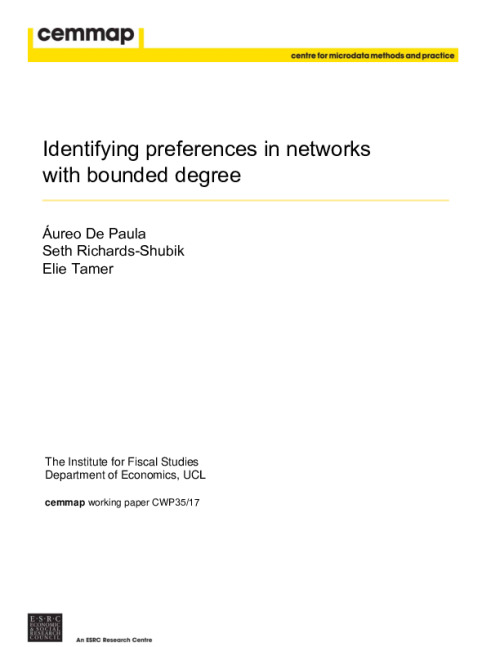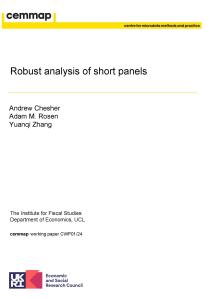This paper provides a framework for identifying preferences in a large network where links are pairwise stable. Network formation models present difficulties for identifi cation, especially when links can be interdependent: e.g., when indirect connections matter. We show how one can use the observed proportions of various local network structures to learn about the underlying preference parameters. The key assumption for our approach restricts individuals to have bounded degree in equilibrium, implying a finite number of payoff-relevant local structures. Our main result provides necessary conditions for parameters to belong to the identifi ed set. We then develop a quadratic programming algorithm that can be used to construct this set. With further restrictions on preferences, we show that our conditions are also sufficient for pairwise stability and therefore characterize the identifi ed set precisely. Overall, the use of both the economic model along with pairwise stability allows us to obtain effective dimension reduction.










